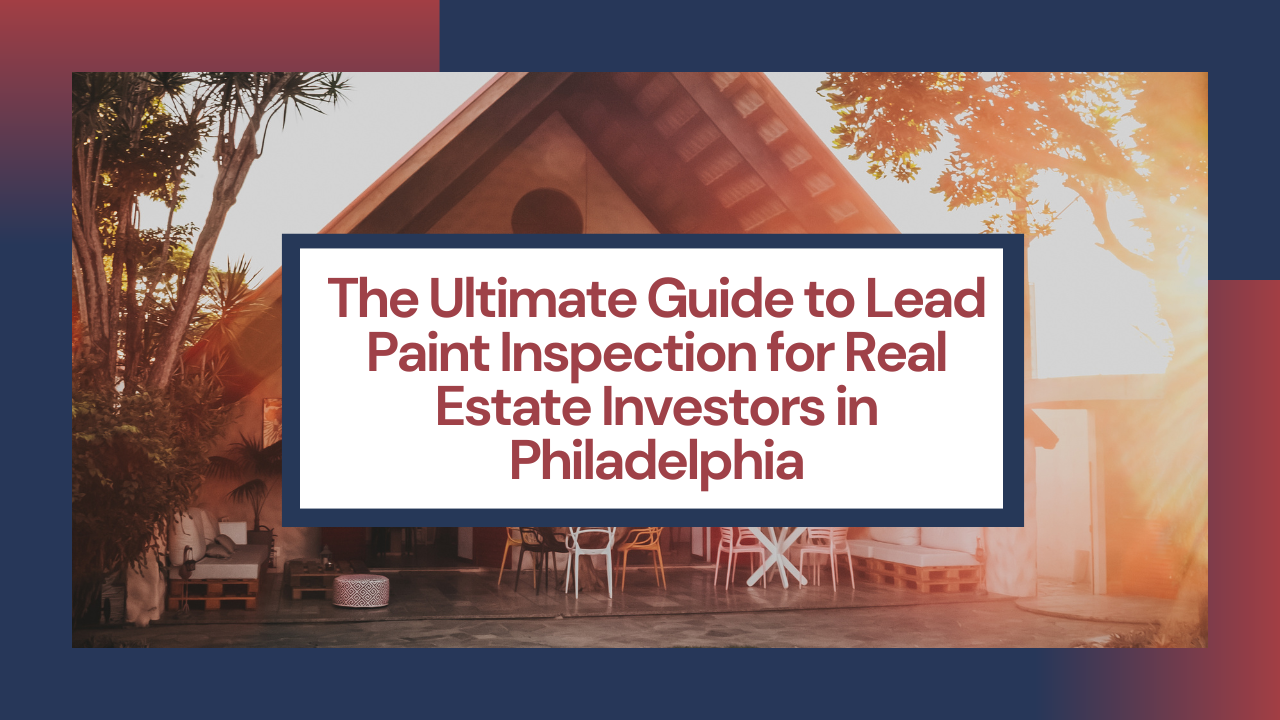As a real estate investor in Philadelphia, you've likely heard about the hazards of lead paint and the importance of proper inspection. In this comprehensive guide, we will dive into the world of lead paint inspection, its significance, and how it impacts your investments. This article is specifically designed to cater to real estate investors in Philadelphia and provide valuable insights to help you protect your investments and ensure the safety of your tenants.
Why Lead Paint Inspection is Essential
Lead paint inspections are crucial for real estate investors for several reasons:
- Tenant Safety: Exposure to lead paint can cause serious health issues, particularly in children. Ensuring the safety of your tenants is a moral and legal obligation.
- Legal Compliance: Adhering to local and federal regulations on lead paint inspection helps you avoid fines, penalties, and potential lawsuits.
- Investment Protection: Regular inspections can prevent costly damages to your property and help you maintain its value.
Philadelphia's Lead Paint Regulations
In Philadelphia, property owners are required to comply with specific regulations regarding lead paint inspection and disclosure. Some of these regulations include:
- Residential rental properties built before 1978 must be certified as lead-safe or lead-free.
- Owners must provide tenants with the Environmental Protection Agency (EPA) pamphlet on lead hazards.
- Owners must disclose any known lead-based paint hazards in the property.
Failure to comply with these regulations can result in fines, penalties, and even criminal charges.
Lead Paint Inspection Process
A typical lead paint inspection involves the following steps:
- Visual Inspection: The inspector will visually assess the property for signs of deteriorating paint.
- X-Ray Fluorescence (XRF) Analysis: This non-invasive technique uses X-rays to determine the presence of lead in paint layers.
- Paint Chip Sampling: In some cases, paint chip samples are collected for laboratory analysis.
- Risk Assessment: The inspector evaluates the potential health risks associated with identified lead hazards.
Selecting a Certified Lead Paint Inspector
Choosing the right lead paint inspector is crucial for ensuring accurate results and compliance with regulations. One local Philadelphia-based company, Environmental Testing Services (ETS), specializes in working with homeowners, commercial properties, and investors throughout the country. Here are some tips to help you select a qualified professional:
- Verify the inspector's EPA certification. ETS has in-house Lead, Indoor Air Quality, and Mold Assessors, as well as a vast network of specialized contractors to fit any specific environmental testing needs.
- Check the range of services offered. ETS provides comprehensive solutions, including lead paint inspections for state compliance and addressing potential lead hazards in and around your property.
- Visit the company's website, such as http://www.ets-enviro.com/lead-free-certification/, to learn more about their services and expertise.
- Look for experience in inspecting properties similar to yours. ETS works diligently with all of its clients, offering tailored solutions to their specific issues.
- Ask for references and read online reviews to ensure a company's reputation for quality service.
By selecting a certified lead paint inspector, like those at Environmental Testing Services, you can be confident in the accuracy of the inspection results and compliance with relevant regulations. Their expertise in lead testing will help you protect your investment and ensure the safety of your tenants.
Interpreting the Lead Paint Inspection Report
Upon completion of the inspection, you will receive a detailed report outlining the findings. The report will typically include:
- Results of the XRF analysis and paint chip sampling, if applicable.
- Identification of lead-based paint hazards, if any.
- Recommendations for remediation or risk reduction measures.
Understanding the report's findings is crucial for determining the next steps and ensuring your property is safe and compliant.
Lead Paint Remediation and Risk Reduction
If the inspection report identifies lead-based paint hazards, you must take appropriate actions to remediate the risks. Common remediation strategies include:
- Paint Stabilization: Repairing damaged surfaces and applying a new, lead-free paint layer.
- Encapsulation: Applying a specialized coating to seal and contain the lead-based paint.
- Replacement: Removing and replacing affected building components, such as windows or doors.
Always hire a certified lead abatement contractor to perform remediation work, as improper handling of lead-based paint can cause further contamination.
Costs and ROI of Lead Paint Inspection
The cost of a lead paint inspection varies depending on the property size, location, and inspector's fees. On average, you can expect to pay between $300 and $800 for a professional inspection.
While this may seem like a significant expense, the return on investment (ROI) can be substantial. Ensuring your property is lead-safe or lead-free protects your investment, helps you avoid costly legal issues, and contributes to a safer environment for your tenants.
Case Study: A Philadelphia Real Estate Investment
In 2019, a real estate investor purchased a multi-family property in Philadelphia, built in the 1950s. As required by law, they conducted a lead paint inspection, which revealed lead-based paint hazards in some units. They invested in remediation work, including paint stabilization and encapsulation.
As a result, the property was certified as lead-safe, and the investor was able to rent the units at a higher rate due to the increased safety and compliance. This example demonstrates the importance and benefits of lead paint inspection for real estate investors in Philadelphia.
Conclusion: Protecting Your Investment and Tenants
Lead paint inspection is a critical component of property management for real estate investors in Philadelphia. By understanding the process, regulations, and remediation strategies, you can ensure your properties are safe and compliant, protecting both your investment and your tenants.
Mike Lautensack is the owner of Del Val Realty & Property Management, where we manage close to 5000 rental units in and around Philadelphia.
For more information on lead paint inspection, property management services, and how to protect your investment, visit our website at https://www.delvalproperty.com/.

